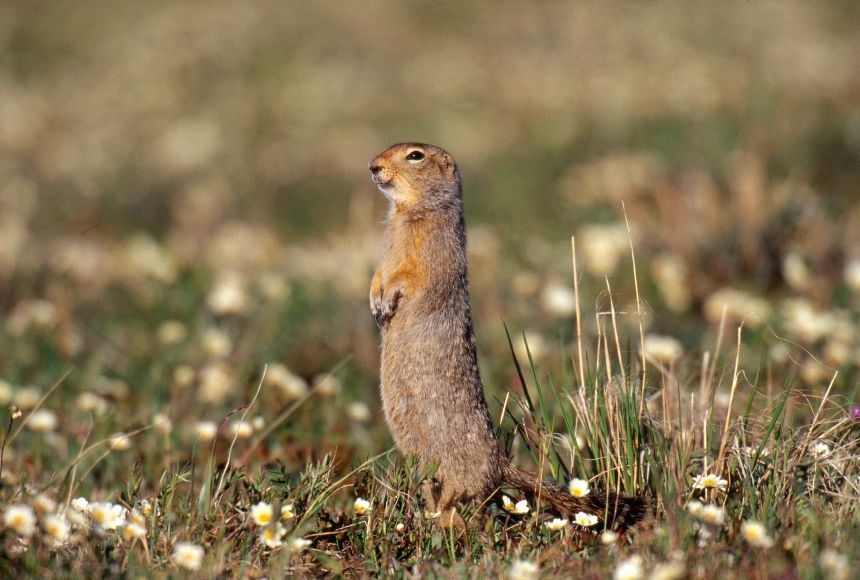ARTICLE
leveledARTICLE
Some Animals Don’t Actually Sleep for the Winter, and Other Surprises About Hibernation
Some Animals Don’t Actually Sleep for the Winter, and Other Surprises About Hibernation
It isn’t just groundhogs—find out which animals hibernate and why.
Grades
3 - 12
Subjects
Biology, Ecology, Storytelling
Image
Arctic Ground Squirrel Upright
Hibernating animals slow their metabolisms, cooling their bodies by 5° to 10°C (9° to 18°F). Arctic ground squirrels (Spermophilus parryii) can take this much further, cooling their bodies to subfreezing temperatures.
Photograph by Thomas and Pat Leeson

Media Credits
The audio, illustrations, photos, and videos are credited beneath the media asset, except for promotional images, which generally link to another page that contains the media credit. The Rights Holder for media is the person or group credited.
Director
Author
Production Managers
Program Specialists
Producer
other
Last Updated
September 6, 2024
For information on user permissions, please read our Terms of Service. If you have questions about how to cite anything on our website in your project or classroom presentation, please contact your teacher. They will best know the preferred format. When you reach out to them, you will need the page title, URL, and the date you accessed the resource.
Media
If a media asset is downloadable, a download button appears in the corner of the media viewer. If no button appears, you cannot download or save the media.
Text
Text on this page is printable and can be used according to our Terms of Service.
Interactives
Any interactives on this page can only be played while you are visiting our website. You cannot download interactives.